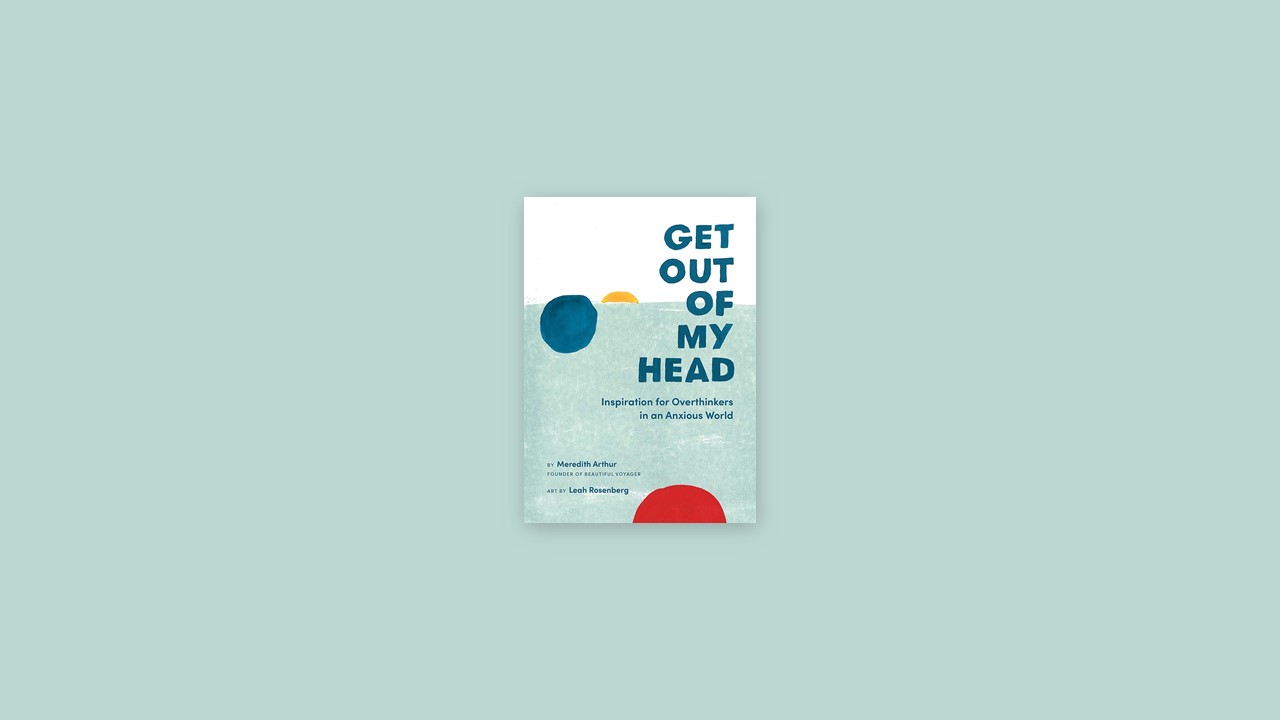Get To Know The Wave
If you’re experiencing intense stress or even anxiety, it’s easy to see all evidence of its presence as a negative. You might think, “Ugh, here I am again: frazzled, sweating, and dizzy with nervousness. This is proof I’m a system out of control.” But if you can learn to break down the experience into its constituent parts, the wave can work for you instead of against you.
Remember, your body creates a surge of hormones—particularly epinephrine, aka adrenaline—that hits your system in response to stressful situations or thoughts, and those hormones bring with them a flood of physical symptoms like chest constriction, tingling arms, heart palpitations, nausea, or dizziness. Since these symptoms are undeniable, concrete proof that we’re responding to the hormone wave, we can use that knowledge to work to accept the wave and its inevitable passage.
By getting to know the wave, you have begun to change your relationship with stress and overthinking. It is the very best place to start on this journey.
TRY: Allowing that physical sensations like dizziness, nausea, neck pain, headaches, and heart palpitations could mean hormone surges are hitting your system.
If You’re Shaking, It’s Time To Celebrate
Now that you can spot the hormone wave hitting your system, you’re ready to learn to celebrate its passing. Have you ever felt a shaky feeling, a weakness in your knees or chest, after stress or panic is over? That shakiness signals the hormone wave is receding. Despite what you may have thought in the past, that shakiness is actually a good thing.
Reframing, or telling yourself a new story about an old thought, is a very powerful technique all overthinkers need in their tool kit. You’ll hear more about reframing over the course of this book, but let’s start now, with the retreat of the hormone wave. Instead of thinking of shaky knees or a weak stomach as a sign that something is wrong, reframe those feelings into something positive: relief from stress. It means you’re going to be okay.
By welcoming the knowledge that the wave is passing, you are celebrating that you’ve been able to coexist with the surge and land safely on shore.
As you celebrate your resilience again and again, you’ll be building your strength into a virtuous cycle that will help you face the next wave.
TRY: Celebrating, rather than avoiding, the shaky feeling of the wave receding. It’s a positive sign that you’re getting stronger every time.
You Can’t Always Please The People You Want To
By embracing the wave, you’re building self-awareness around the physical experiences of overthinking. This is a great time to start working on the other side of the equation: self-acceptance.
This work is especially important for people pleasers.
Wanting the approval of people around you—especially romantic partners, best friends, parents, and bosses—is pretty common. Maintaining those relationships is, of course, part of being human. But ruminating on microscopic relationship ruptures, filling journals with what-ifs and regret, and fixating on the possible meanings of small social interactions are strong signs of overthinking, and they can be a big distraction, keeping us from tuning in to what’s really at stake: the opportunity to be in sync with what we think and feel. Put another way: If we’re ruminating on moments from the past that we can’t change, we risk not being able to act on what’s important now.
TRY: Accepting the fact that you can’t please everyone. Ruminating on perceived discord can distort your perspective, making small conflicts for others big to you.
Protect The Head
First, identify your everyday stresses that could benefit from a defensive boundary. Maybe it’s toxic news downloading into your brain from the Internet or the rush to get to work before the boss each morning. One fellow Beautiful Voyager says, “I sometimes find myself sucked into the problems of others in unhealthy ways. I want to be able to help, but often just end up feeling saddened on their behalf.”
If you can relate, it might be time to create a protective catchphrase for yourself.
Pprotect the head.” It’s a boxer’s axiom. If a professional boxer gets hit in the head, she’s likely down for the count. We overthinkers are not so different
The right catchphrase gives you permission to change course immediately, which will, in turn, interrupt the hormone hit before the wave starts to build. Is social media making you feel like you need to solve all of the world’s problems? Protect the head and close the app. Is getting to work before your boss causing massive trouble with your family’s routines? Protect the head and set up a meeting to talk about schedules with your boss.
Remember, mental health is a “get the oxygen mask on yourself first, then help others” situation. By recognizing moments when a boundary could help you breathe easy and then using your catchphrase for support, you’ll begin to be able to assist others when the air gets thin.
TRY: Inventing a simple catchphrase to create a defensive boundary for your mind. The right phrase will help you let go and take action.
Ditch These Common Misconceptions
Here’s something I hear a lot: “Overthinking, stress, and anxiety help me. They push me to get things done on time. If I’m stressed out about my messy house, I make sure it gets clean, fast. Worry helps me achieve more.”
At face value this makes sense, but my own experience and science come to a pretty firm conclusion on that: nuh-uh. Fear, excess cortisol, and adrenaline surging through your body do not help you achieve more. The truth is, though they feel motivating, these excess hormone surges are actually impediments—you’re doing well despite them. Do not give your overactive fight-or-flight response the credit. Give yourself the credit, and then imagine how much more pleasant those achievements would have been had they been realized without all the hormonal mania.
TRY: Accepting that overthinking, stress, and anxiety aren’t helping you get your work done, despite what you’ve believed in the past.


